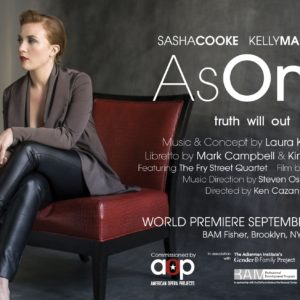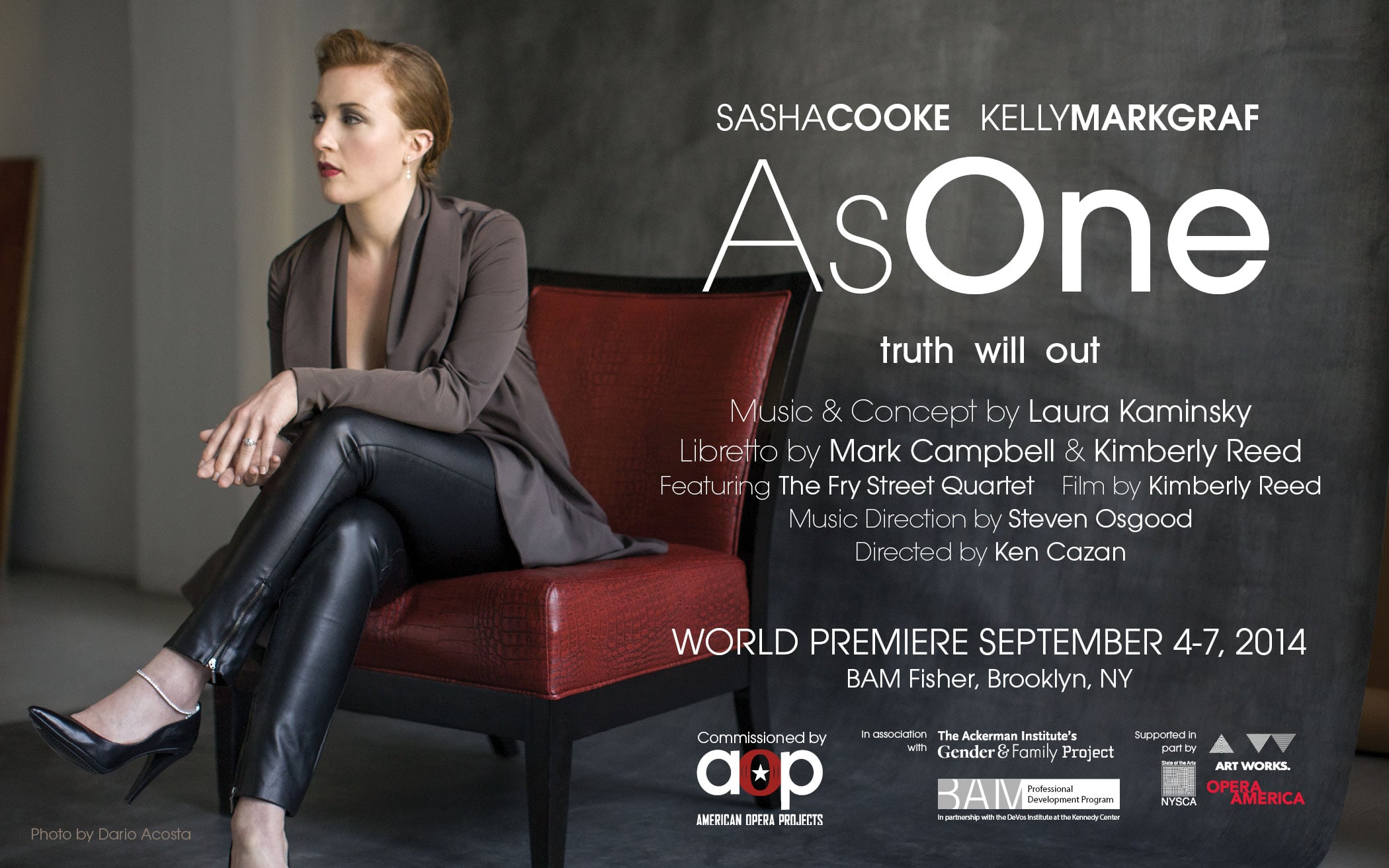Trans opera is coming to London
NewsThe London Festival of American Music has landed the UK premiere of As One, Laura Kaminsky’s chamber opera about the journey of a transgender woman.
Simon Wallfisch plays the central character before and Arlene Rolph Hannah after.
Festival director Odaline de la Martinez conducts her Lontano Ensemble in four performances, September 13-18.
The opera was originally created in Seattle. The librettists are Kimberly Reed and Mark Campbell.







Comments